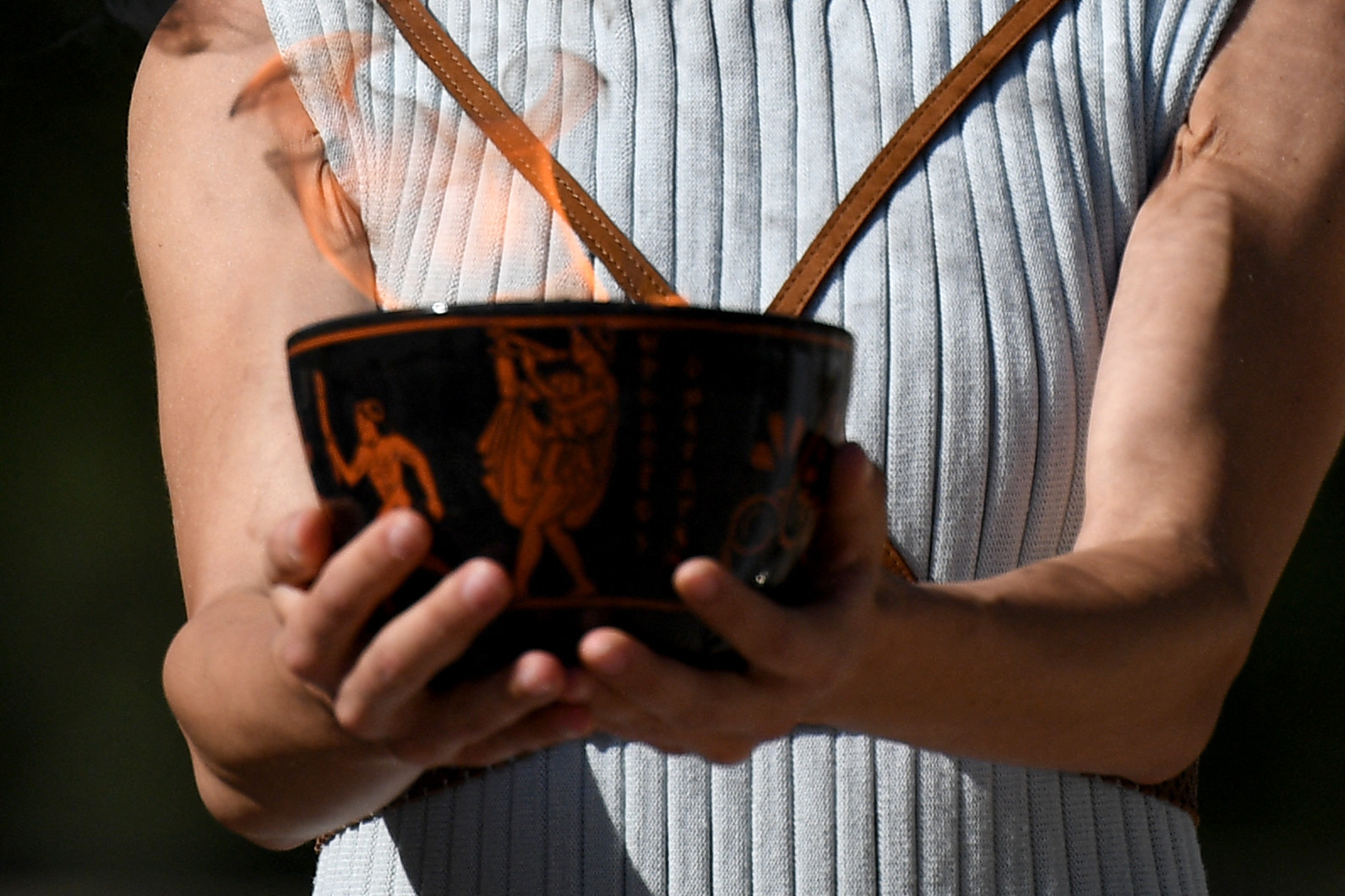The Olympic flame is scheduled to arrive in the French port of Marseille on Wednesday 8 May, and is expected to be greeted by a crowd of up to 150,000 spectators, marking the inaugural significant trial of the extensive plans for the Paris Games.
Transition of the flame from the 19th-century tall ship to land will signify the commencement of a 12,000-kilometre (7,500-mile) torch relay spanning mainland France and its remote overseas territories. Organisers are optimistic that this initial public spectacle of their highly anticipated “iconic” Olympics, just 79 days away, will contribute to fostering excitement following a contentious dispute over ticket prices and persistent security concerns.
Chief organiser Tony Estanguet told reporters on Monday, “It’s something we’ve been waiting for for a very long time. It’s here. One hundred years after the last Games, the Games are coming home.” When the Paris opening ceremony commences on 26 July, it will mark the city’s return as host after a century-long hiatus, with previous editions held in 1924 and 1900.
France considers itself central to the modern Olympic movement, credited to the efforts of French aristocrat Pierre de Coubertin, who revitalised the ancient Greek Games practiced until the 4th century BC. Following the pandemic-impacted edition in Tokyo in 2021 and the corruption scandals surrounding the Rio de Janeiro version in 2016, the Paris Olympics are perceived as a pivotal moment for the integrity and significance of the sporting extravaganza overall.
A demonstration of public excitement is expected as the flame is transferred on Wednesday evening from the Belem, a French merchant vessel that has completed a 12-day journey from Greece. More than 1,000 additional boats will join in as the flame approaches the harbour, with organisers anticipating approximately 150,000 spectators to witness the transfer at the newly renovated marina of Marseille, where the sailing events will take place during the Olympics.
Following on from the announcement of the cauldron, the spectacle will culminate with fireworks and a complimentary concert, all of which will be broadcast live on French television. In the background, approximately 6,000 security personnel are anticipated to be on duty, representing a significant trial of the extensive security measures implemented during a period when the country is under its highest terrorism alert level.

The privilege of being the inaugural torchbearer will be bestowed upon four-time Olympic medalist swimmer Florent Manadou. Other notable figures slated to participate in the procession, extending into Thursday, include NBA champion basketball player Tony Parker, footballer Didier Drogba, as well as personalities from the realms of charity and entertainment.
One beach-cleaning charity has opted to boycott the event in protest against Olympics sponsor Coca-Cola, while notably absent from the scheduled lineup is Marseille’s iconic sporting figure, football legend Zinedine Zidane.
Stringent security measures will remain a constant presence as the torch makes its way through over 450 towns and cities across France, passing by numerous tourist destinations such as Mont Saint Michel. Approximately 200 security personnel, including an anti-terror team and operatives trained to counter drones, will be deployed to ensure the torch’s safety throughout its journey.
Without the looming threat of a significant security incident, the opening ceremony will unfold aboard boats on the Seine River, marking a departure from the traditional approach of inaugurating the Games within the main stadium. All essential infrastructure has been finalised, with just two new permanent sporting facilities constructed, reflecting efforts to mitigate the financial expenditure and carbon footprint associated with the global event.
The Paris Olympics are scheduled to take place from 26 July to 11 August, followed by the Paralympics from 28 August to 8 September.

